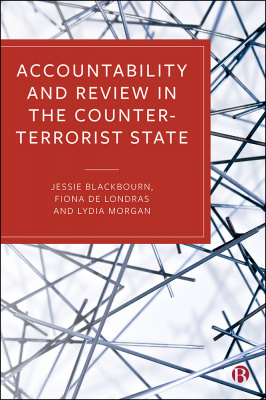In this research, we were interested in what values our interviewees thought counter- terrorism review did and should reflect, and how they pursued those values in practice. There was a notable unity of values across the assemblage. Interviewees conceptualised counter-terrorism review as being underpinned by the values of democracy, transparency, credibility, and independence. Views on how these values could be pursued through counter-terrorism review varied, often according to the attitude of the interviewee to counter-terrorism and the counter-terrorist state per se, but across the interviews we discerned the view that being independent, being experts and gathering evidence, and listening were the primary ways in which these values were enacted.
terrorism review did and should reflect, and how they pursued those values in practice. There was a notable unity of values across the assemblage. Interviewees conceptualised counter-terrorism review as being underpinned by the values of democracy, transparency, credibility, and independence. Views on how these values could be pursued through counter-terrorism review varied, often according to the attitude of the interviewee to counter-terrorism and the counter-terrorist state per se, but across the interviews we discerned the view that being independent, being experts and gathering evidence, and listening were the primary ways in which these values were enacted.
Democracy
For many of our interviewees, counter-terrorism review was about democracy. For many of our interviewees, rigorous public and political debate about counter-terrorism is needed, and counter-terrorism review produces the information and insight that enables that debate and informs Parliament and the public, providing explanations and information to those without access to classified material.
This chimes with our broader claim that the UK is now a counter-terrorist state, and that the ordinary expectations of the state, including that actions would be justified and policy subjected to challenge and debate, should be applied to it. But to achieve this, some additional, subject-specific accountability mechanisms are required so that the challenges of confidentiality, deference, and risk management that arise in the field of counter-terrorism can be negotiated. The intrusive nature of counter-terrorism is such that, for our interviewees, it cannot be left outside of the pursuit of accountability, and so specialised accountability mechanisms are devised (such as the Independent Reviewer of Terrorism Legislation, or the Investigatory Powers Tribunal) as well as the ordinary political and legal structures. Such bodies have exceptional capacities to subject counter-terrorism to scrutiny, informing or acting as proxies for the processes of political accountability that lie at the heart of the UK constitutional system, although a good number of our interviewees did consider such institutions to be problematic.
The second value that our interviewees thought was pursued through counter-terrorism review was transparency. While most of our interviewees were prepared to accept some limit to transparency in counter-terrorism in order to protect operational procedures and limit security risks, it was also clear that many felt the current levels of protective secrecy were excessive. Across the spectrum of those we interviewed, there was a sense that counter-terrorism review could be a way of trying to increase transparency in counter-terrorism, which they saw as key to legitimating government activity, although they were keenly aware of how difficult this was to achieve when the state controlled the question of who could access relevant information.
The final value that our interviewees thought was pursued through counter-terrorism review was independence and ensuring that the activities of the counter-terrorist state were subjected to independent scrutiny. This connects with transparency. Our interviewees suggested that they thought it important to maximise transparency and public engagement. This not only enhances democracy but, as one person we spoke to said, is also ‘very good for the perception that the role is serving the public and independent as opposed to just serving as a rubber stamp’. The importance of independence to accountability has long been recognised, but that does not mean that it is always tangible or easily identified. Our interviewees made this evident by offering a variety of views on what exactly signified independence, even across review mechanisms that contained ‘independent’ in their name. However, what was common was that interviewees valued independence because distance between the reviewer and that which they review provides confidence in the process and in its outcomes. Interviewees also valued independence because they perceived it as being important for the credibility of, and as helping to produce trust in, review mechanisms, improving the confidence of the public, civil society and the courts that the counter-terrorist state is being held accountable.
This is adapted from Chapter 3 of Accountability and Review in the Counter-Terrorist State
